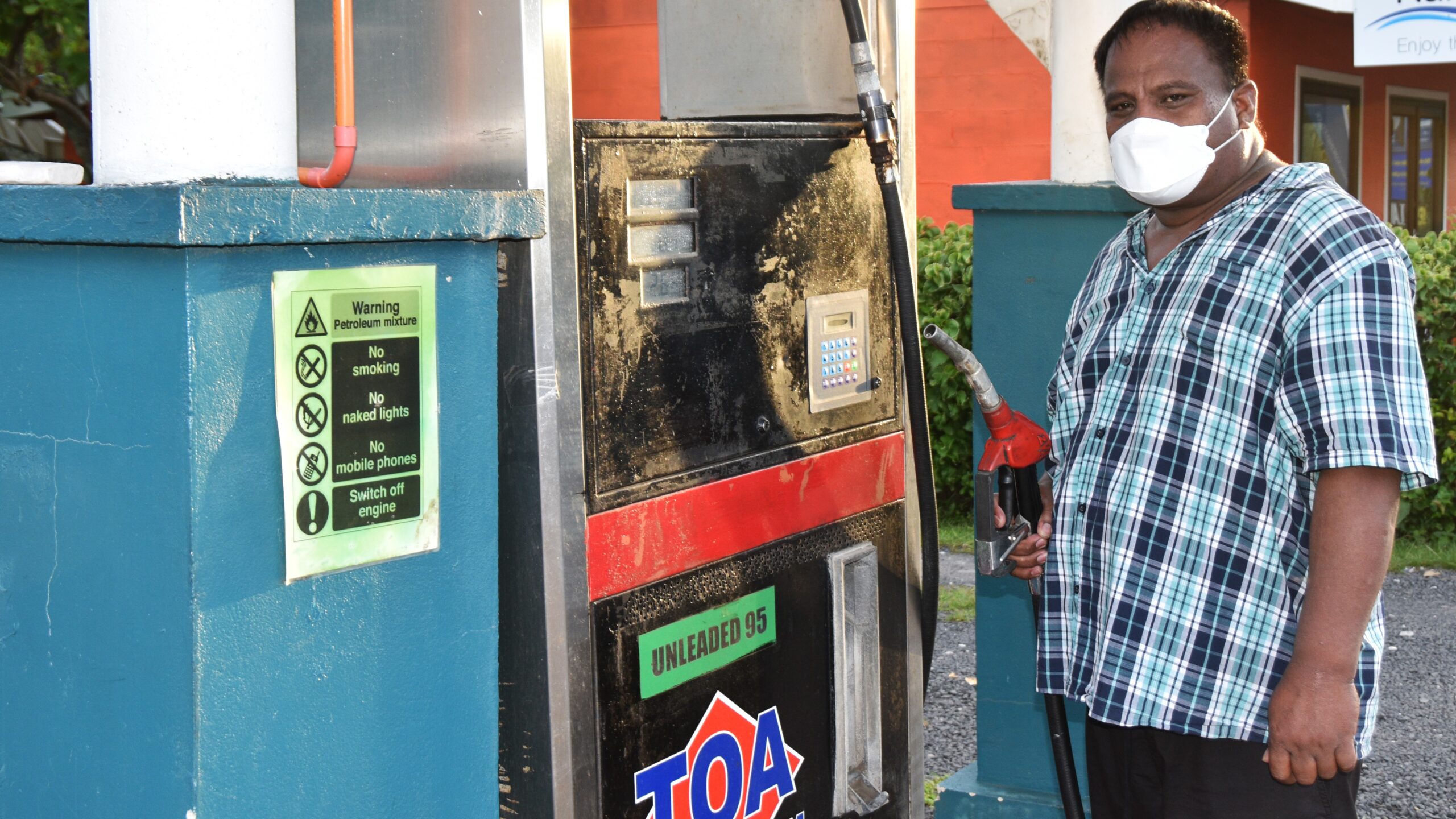Cook Islanders struggling with rising cost of living
Wednesday 17 August 2022 | Written by Matthew Littlewood | Published in Economy, National

Convenience Store’s Teibi Ioteba at the shop’s petrol station earlier this year. Petrol prices continue to rise in Cook Islands. Photo: FILE/RASHNEEL KUMAR/22031320
A major Cook Islands consumer survey has revealed that many are struggling with the rising cost of living.
The Labour Consumer and Business Unit of the Ministry of Internal Affairs has just released the first batch of results from its consumer poll, which has canvassed about 320 people in June about their consumer experience over the past year.
It revealed that 95 per cent had reported increase in grocery supplies, 93 per cent had experienced a rise in fuel prices, 32 per cent experienced rent increases, 75 per cent an increase in power bills and 71 per cent an increase in internet and phone bills.
A social media statement from the Ministry of Internal Affairs says the results would be useful for future research.
“The collected data provides a snapshot of the reality faced by our people in the current situation. As elsewhere across the world, increase in the cost of living is affecting daily lives of our families and most vulnerable,” the statement says.
“The responses provided demonstrates the need to explore interagency collaboration as well as private-public sector cooperation on how to help alleviate the pressure of increased cost of living.
“Some initiatives like free budgeting courses, price control on white square bread, fuel and gas as well as the recent increase in minimum wage are already in place. As the situation prolongs, it is timely to seek out other avenues to best respond to our community’s needs.”
Cook Islands increased its minimum wage from $8 to $8.50 on July 1, 2022.
Internal Affairs director of Labour and Consumer Services Sandrina Thondoo said “whilst we are not surprised by the results, it was important for our office to collect the feedback from the community in a formal manner”.
“Surveys are a way of understanding consumer needs. As we develop the area of consumer protection, we need data to assess trends and conditions, advance understanding and raise awareness and develop policies and recommendations,” Thondoo said.
“The initial survey, together with consumer complaints received by our team highlight areas of concern that require action and support. We will be reaching out to consumers through other surveys, polls and meetings as we believe in a collaborative approach. By sharing their experiences, consumers can actively contribute and inform future programmes led by the Consumer Protection team.”
Thondoo said it hoped that “consumer confidence will increase as we continue to raise awareness and provide a platform for public discussion on how to empower consumers regarding their rights and protection”.
The Chamber of Commerce and Ministry of Finance and Economic Management were approached for comment.













































